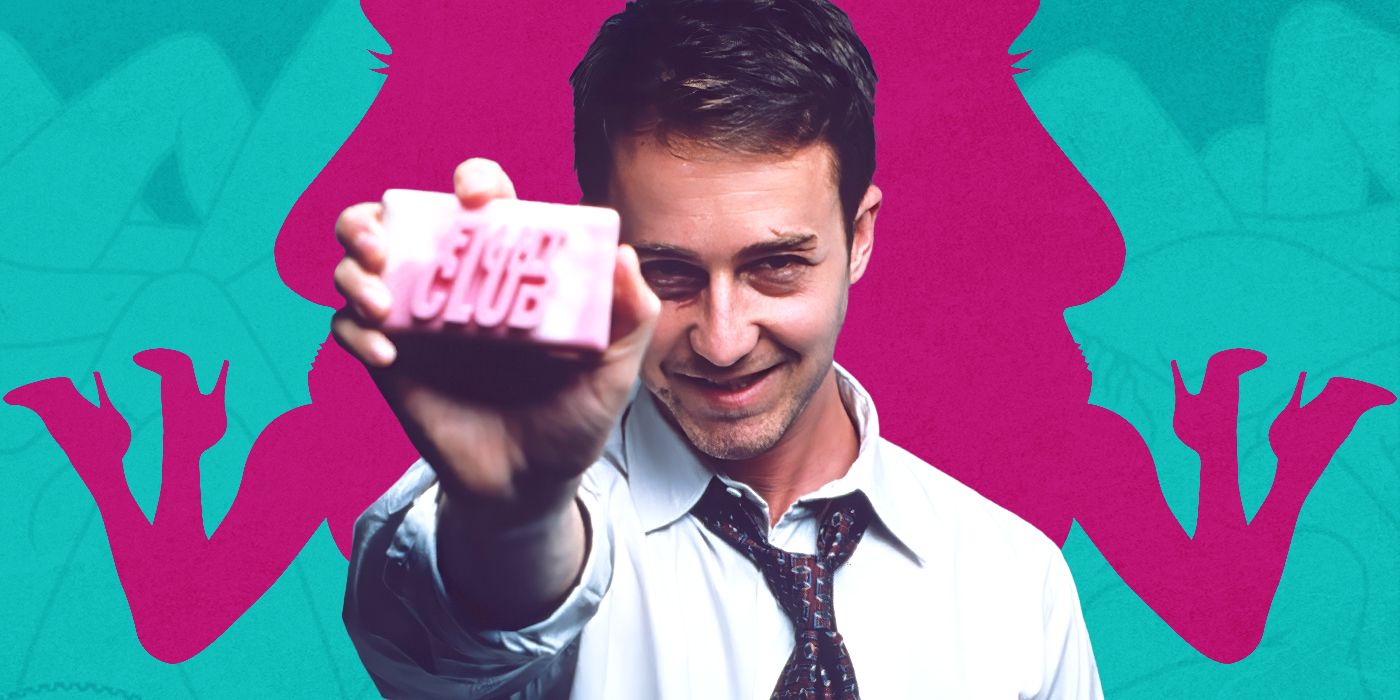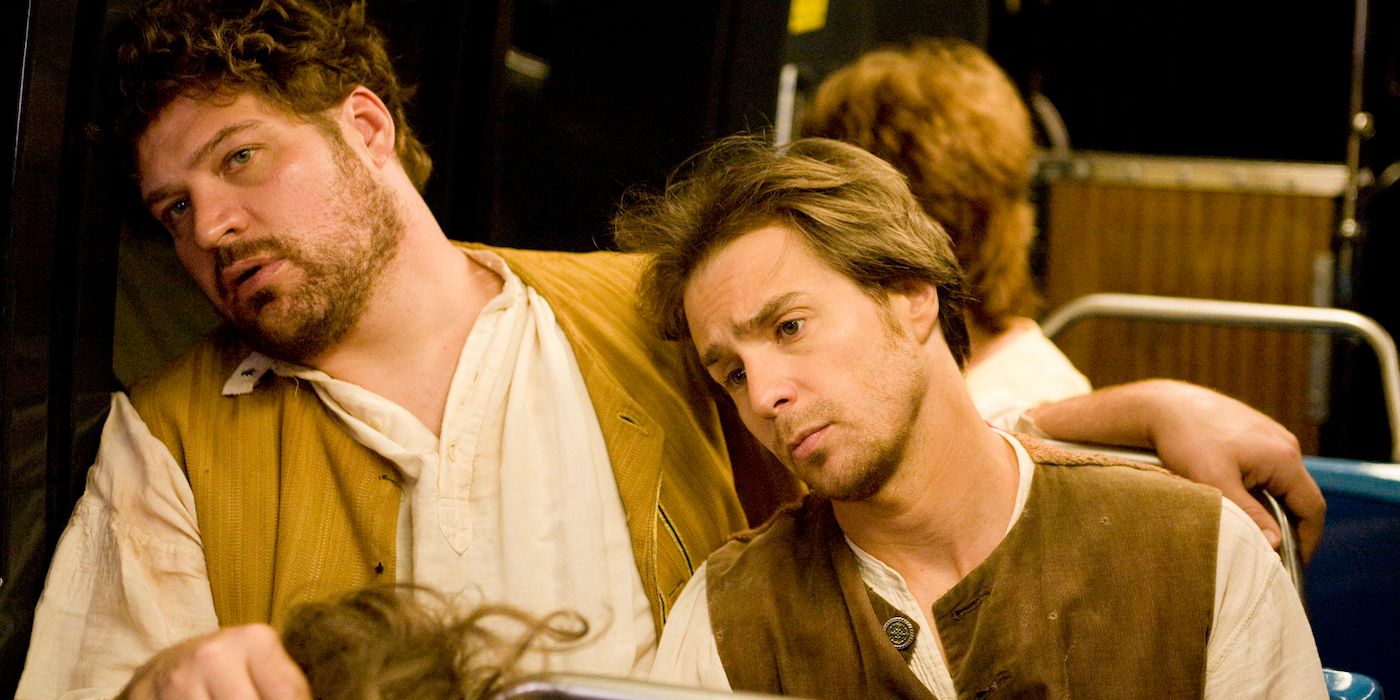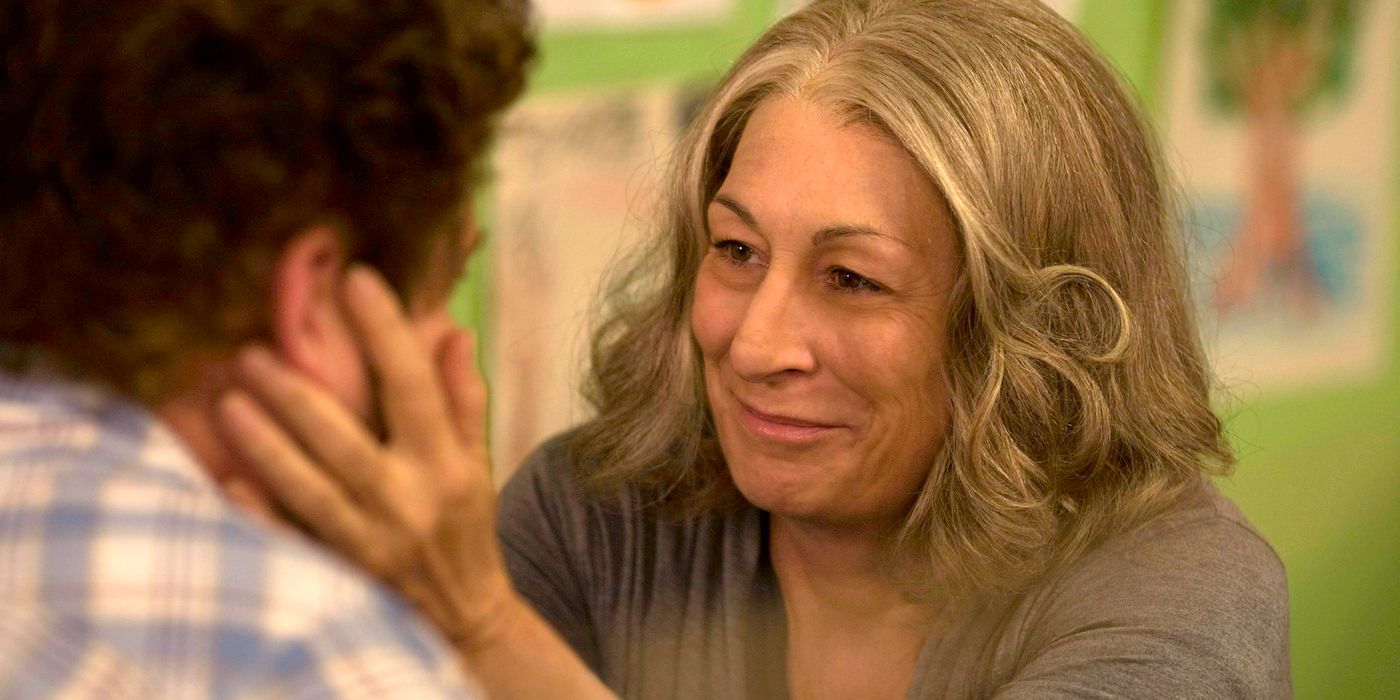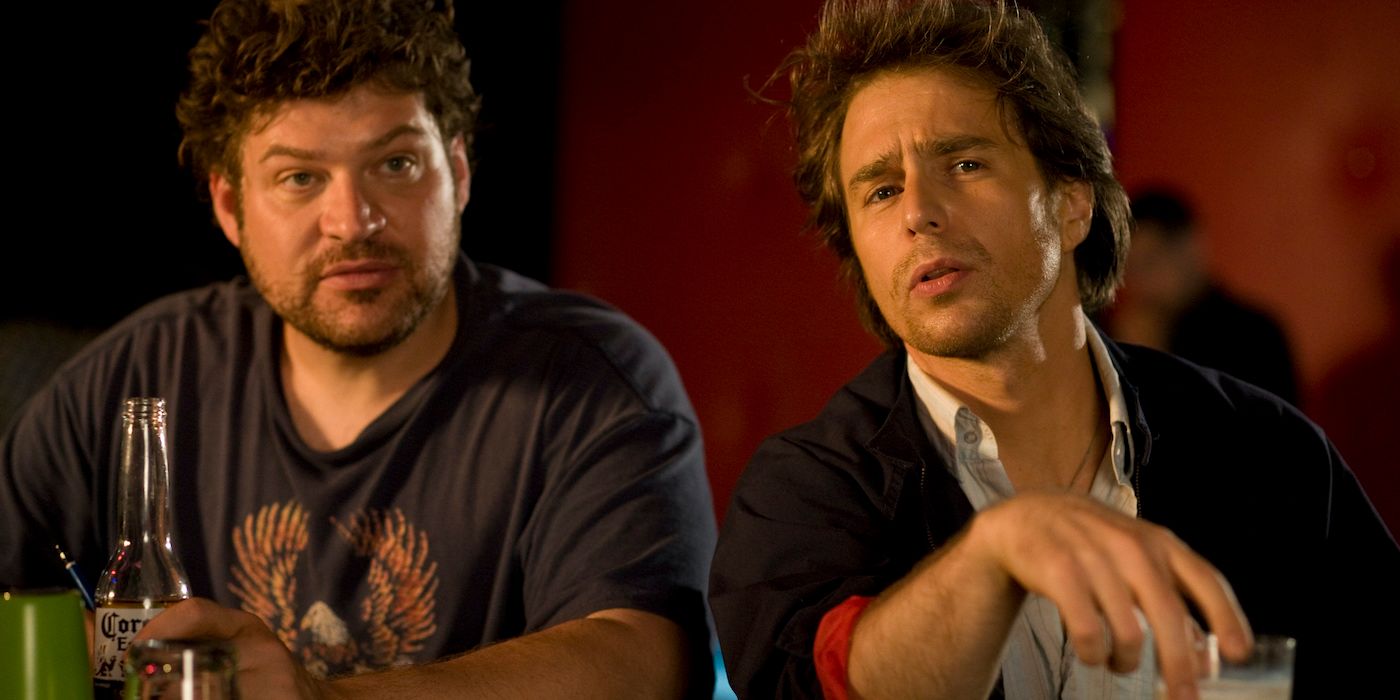Editor's Note: The following references sex addiction.Chuck Palahniuk is one of the most incendiary American writers of the past fifty years, with witty prose, shocking subject matter, deplorable characters, and exhaustive research peppered throughout his many works. When 1999’s Fight Club premiered in theaters, Palahniuk saw his readership explode, and Hollywood was eager for the next blockbuster adaptation from the fresh young voice. While many titles were optioned, the next film viewers did get was the markedly different and surprisingly underperforming Choke in 2008, adapted for the screen and directed by Clark Gregg, starring the always impressive Sam Rockwell and Anjelica Huston.
Why 'Fight Club' Was a Success & 'Choke' Was Not
Fight Club was a phenomenon, though largely unappreciated upon its initial release as the satire it was intended to be. With a huge budget and an auteur at the helm in David Fincher, Fight Club boasted stunning visuals, camera tricks, CGI, star power, muted colors, and a ballsy, nihilistic approach to masculinity and consumerism in 1990s America. Brad Pitt was the lithe, muscular lead, followed around by a hangdog Edward Norton, with Helena Bonham Carter thrown in to stir the pot. The film was dangerous and enlightening, illuminating a seething emptiness and shallow sense of self that permeated through semi-professional drones of the time. Viewers learned about soap and dynamite, insurance math and corporate branding, defeatism, and space monkeys. For all its dirtiness it was ultra-polished, every frame scrubbed from bottom to top to fit the director’s vision and Hollywood’s unyielding standards.
In contrast, Choke is a very bare-bones straightforward film. The photography is vibrant and life-like, lacking the silver screen sheen that separates the viewer from the subject, allowing the audience to see themselves in the frame. One sees a world of relentless disgust, showcased with no filter. Choke centers around Victor Mancini, played with aloof integrity by Sam Rockwell. Victor is a soulless billiard ball, seeking out fleeting moments of intimacy through meaningless sex and a long con of detestable acts - Victor will purposely choke in public spaces so that strangers can save his life, cradling him in their arms afterward and forming a lifelong bond that tethers them to his continued wellbeing. Victor uses this bond to extract money from his benefactors, and for many years it’s been working quite well. The money he makes is chiefly used to pay for the expensive boarding of his deteriorating mother in a mental facility. Dementia has taken her current mind into the past, so much so that she rarely recognizes her son when he comes to visit, mistaking him for a revolving cadre of old acquaintances.
'Choke' Takes on Mommy Issues
Victor is a sleazeball, and that’s the way he likes it. He rages against any kind of redemption that may come his way, justifying his lot in life by the unusual rearing of his mother and his total lack of a father. Anjelica Huston plays Ida Mancini with a beguiling streak of mischief, teaching her son the hidden meaning of overhead announcements in train stations, airports, and hospitals, snatching the wool over his eyes and essentially stealing childhood from him. A true rebel without a cause, Ida is constantly on the run from the law due to her frequent illegal acts of disorder, all of which seem to add up to no greater goal than general lawlessness. Whether she’s stealing a bus or letting zoo animals out of their cages, she seems to have no endgame other than chaos. These schemes land her on the wrong side of the law, causing Victor to revolve through frequent foster homes, often ending his tenure there when his own mother comes out of the shadows to kidnap him once more.
The Victor that emerges from this childhood, or lack thereof, is incapable of forming connections with most people, particularly women. He treasures the coddling moments he has on restaurant floors in the arms of strangers after nearly asphyxiating, but when it comes to relationships, he much prefers the “sweet nothing” of an orgasm. He attends support groups, much like the narrator counterpart in Fight Club, for sex addiction but doesn’t do the work - he’s mostly there to meet other sex addicts and find an easy score. By day, he works in a colonial educational park as an indentured Irish servant, lorded over by the far-too-serious Lord High Charlie, played with remarkable comical seriousness by writer/director Clark Gregg.
Clark Gregg's Depraved Sense of Humor Comes Through in 'Choke'
Before he was Agent Coulson in the Marvel Cinematic Universe but after he was Julia Louis Dreyfus’ husband on the New Adventures of Old Christine, Gregg took the ambitious task of adapting this work for the screen and directing it. Implanting himself as a boss within the film’s framework is such a sweet piece of metacommentary that elevates the movie above a mere performance piece. Being the boss behind the camera for such a depraved and hilarious film while also being a stickler for period detail within the film brings the viewer into the production. The audience gets a thrill from being part of the perverse in such a way.
Choke is a hard R-rated movie, and the extent of Victor’s depravity is not withheld. Rounding out the cast are a ton of familiar faces, from Bijou Phillips, Jonah Bobo, Kelly MacDonald, and Brad William Henke, and as a nice little treat for Community fans, Gillian Jacobs. All the characters present are also a befuddling assemblage of disorders, such as Henke as a chronic masturbator who collects rocks for each day of his sobriety, MacDonald as Ida’s new doctor with a radically unorthodox approach to her rehabilitation, and Jacobs as a stripper named Cherry Daiquiri (though she does not admit that’s not her real name). All of these characters help to color outside of Victor’s lines and further muddy his distorted reality, all for the viewer’s delight or revulsion. The film deviates from the dismal ending of the book, opting instead for a seemingly happy one, though that doesn't render any of the preceding events any less incendiary.
Why Did 'Choke'... Well, Choke?
Choke didn’t make quite as much of an impact as its brasher older brother Fight Club possibly because of America’s aversion to sex as a story device. Rating classifications have always been quite prude when it comes to sex but rather fast and loose in terms of violence. While the audience for both films should see something repugnant in the respective narrators, as is Palahniuk’s trademark style, it’s easier for one to relate to violence than it is to perversion. It’s ludicrous how sexy violence is to Americans and yet how dangerous sex is to the same group. Choke succeeds by not muting the actions on screen in terms of color or portrayal and instead presenting them as something real and thoroughly uncomfortable. It is Gregg, with the exceptional mouthpiece of Rockwell, begging America to look at itself. And maybe have a little wank while they’re at it.




